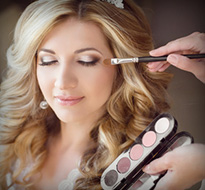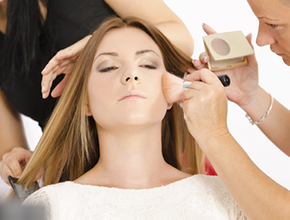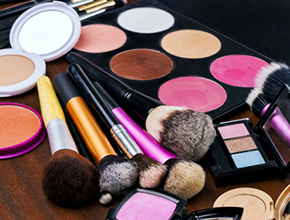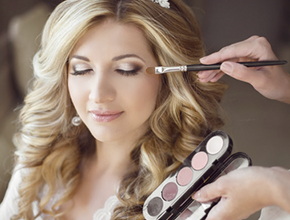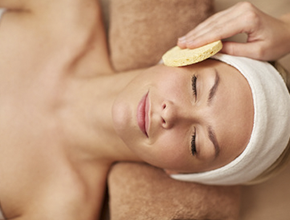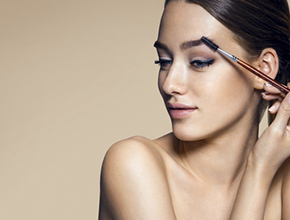- CP001
CP001 H.I.V./A.I.D.S., Sanitation, Sterilization & Bacteriology
(90 clock hours)
This is an interactive class exploring H.I.V. /A.I.D.S. including its history, transmission, prevention and symptoms. The class will also discuss legal and ethical issues in both the personal and professional setting. The student will also learn the various types and classifications of bacteria, how bacteria grow and reproduce and the relationship of bacteria to the spread of disease. The student will also be taught the difference between sanitation, disinfection, and sterilization.
- CP002
CP002 Basic Chemistry, Hair Coloring
(90 clock hours, 45 services, 25 Work-base hours)
At the end of this chapter the student will have learned to define organic and inorganic chemistry and know the differences between them. The composition of elements, compounds, and mixtures. The properties of matter, elements, compounds, and mixtures. Define acids and alkalis and know the difference between them. The chemistry of water. The classification of shampoos and types of conditioners. The composition of hair before, during and after hair coloring. The basic chemistry, types, and action of professional products. The students will also learn the correct procedure for a client consultation, the principles of color theory and relate their importance to hair coloring. They will also learn the classifications of hair coloring, and the types and uses of hair lighteners.
- CP003
CP003 Draping, Shampoo & Rinsing, Scalp and Hair Treatments, Hair and its
Disorders
(90 clock hour, 95 services, 30 Work-base hours)
At the end of this chapter the student will have learned draping for wet hair services, draping for chemical services, and draping for dry hair services. The student will have learned the reasons for good hygienic care of the hair and scalp, the procedure for shampoo manipulations and the various types of shampoos and rinses and their PH levels. The student will have learned how to treat normal, dry, and oily scalps. They will also learn corrective hair treatments, the purposes of hair, to define hair, the composition of hair, the divisions of hair, the process of hair growth, the causes of hair loss, hair loss treatments, scalp and hair disorders commonly seen in the salon, and know which can be treated there.
- CP004
CP004 Hair Design, Hair Styling
(90 clock hours, 370 services, 130 Work-base hours)
At the end of this chapter the student will have learned to describe why professional haircutting is the foundation for hair design in the salon. Conduct a scalp and hair analysis, explain the difference between a stationary guides and a traveling guide. Define low elevation, high elevation, reverse elevation, and blended elevation. Description on how to cut very curly hair. The student will learn the elements of good design and the art principles in hair design. They will be able to analyze the different facial types and also how to camouflage facial flaws with hair design.
- CP005
CP005 Skin Care
(90 clock hours, 10 services, 5 Work-base hours)
At the end of this chapter the student will have learned the beneficial effects of a facial, the materials and equipment required for a facial treatment, and the basic procedure for a facial. They will also learn the required or optional manipulation for a facial and how to identify reasons a client might find fault with a facial treatment.
- CP006
CP006 Permanent Waving, Hair Straightening/Waxing
(90 clock hours, 60 services, 23 Work-base hours)
At the end of this chapter the student will have learned to identify the products used in permanent waving, describe the relationship between hair structure, perm chemistry, and perming techniques. There will be a demonstration of a client consultation and hair analysis and the proper rod selection, sectioning, parting, and wrapping procedures. Safety precautions will also be listed. The student will learn the purpose of chemical hair relaxing, the different products used and the difference between sodium hydroxide relaxers and the relaxers. They will also learn the three basic steps of chemical hair relaxing and their procedures.
- CP007
CP007 Manicure Pedicure & Nail Extensions
(90 clock hours/20 services)
At the end of this chapter the student will have learned the abilities of good manicurist, to identify the natural nail shapes, the proper use of implements, cosmetics, and materials used in manicuring and massage techniques used in giving a manicure. They will also learn the different types of manicure and the proper procedure for a pedicure. They will also learn proper sanitary and safety precautions for a manicure and/or pedicure.
- CP008
CP008 Professional Ethics, Salon Management, Florida Law
(90 clock hours)
At the end of this chapter students will have learned the laws and statutes of the State of Florida concerning Cosmetology. The student will be able to define personality, list the qualities of effective communications, good human relations and professional attitude. The student will also learn the facts needed to open a beauty salon, discuss financial considerations involved in operating a salon, the importance of maintaining accurate business records and the importance of advertising.
- CP009
CP009 Clinic
(390 clock hours)
This course is designed to provide the clinical experience that will enable the student to reach his/her maximum potential as they become cosmetologist.
- CP0010
CP010 State Board Review
(90 clock hours)
This course is designed to prepare the student to pass the Florida State Cosmetology Board Exam.
DOWNLOAD PDF COSMETOLOGY PROGRAM
Books
Milady’s Standard Cosmetology Textbook, Milady’s Standard Cosmetology Workbook for Theory and
Milady’s Standard Cosmetology Workbook for Practical.
Requirements for Graduation
Students must complete 1200 clock hours of theory, practical and clinical services with a minimum cumulative
grade point average of 2.0, and/or after the institution certifying the student he/she can challenge the State
Board of Cosmetology Exam, after completing 1,000 clock hours. In the event the student fails the exam he/she
must complete the 1200 clock hours. Completion of the minimum services required. Meeting all financial
obligations with the School.
Diploma
After the completion of the program, the student receives a diploma providing that the final examination is
approved and all requisites and financial obligations with the institution have been met.
Requirements for Licensing
Submit to the State Board of Cosmetology the following:
- Application form (duly completed and signed)
- Money order or check in the proper amount depending on odd or even years payable to DBPR. The school office will help determine your total amount.
- Certificate of completion of H.I.V. /A.I.D.S. Seminar (4 hours).
Method of Payment
Full payment may be made in advance, at the beginning of the program, mid-point of the program, paid on a
monthly basis arranged with the School office.
